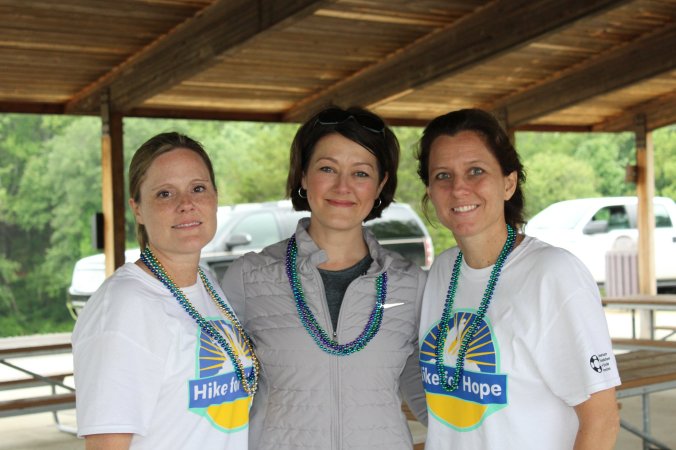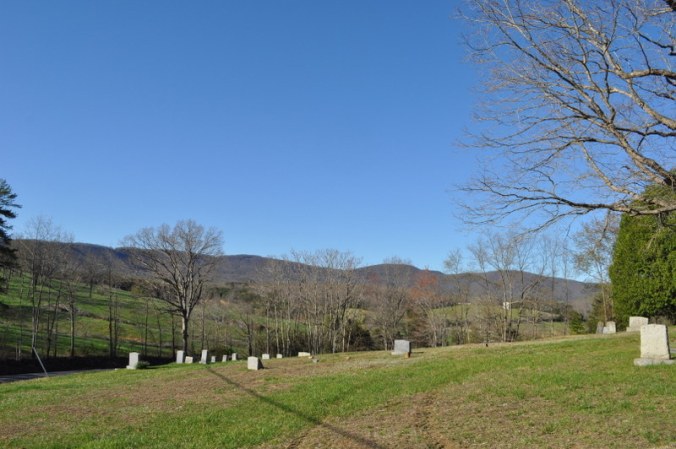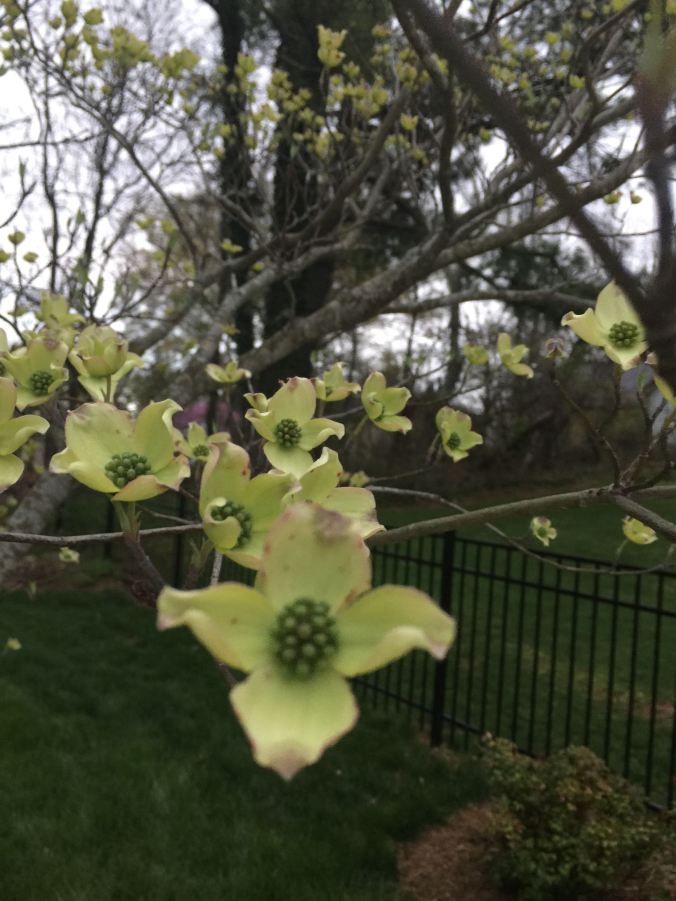Below is the written version of the talk I gave at Bedford’s Hike for Hope today, May 11, 2019. The words didn’t come out exactly as written. Here is how I intended them. Thank you, Bedford community, for allowing me to share. Thank you for so generously sharing your attention and your courage and your strength. I was deeply moved by each of you and your contributions to the day.
Thank you, Shannon, Tonya, Sherri, and to all who have made this day possible.
I am both encouraged and disheartened to see so many gathered together today. Encouraged, because your presence here tells me you care deeply about one another, about mental health, about helping those who are hurting. You’ve shown up to share stories, pain, hope – and you believe that we can change the world. You are my kind of people.
And, disheartened: Because to see so many of you here reminds me that there are so many who have lost someone to suicide; or who have almost lost someone to suicide; or who themselves were almost lost. I see you, I see the beads you wear, I see the pictures of your loved ones and I am sorry for your loss.
I have known all three of those stories: I have been to the funeral of a beloved family member who died too young and suffered for too long. I have seen more than one of my friends battle the brink of that decision. And I have lived through a darkness that was dark enough I considered, and took action to end my own life.
This is my story.
My depression officially began at age 16 when I first got the diagnosis and first got help for my debilitating symptoms. The help I’ve gotten has been kind, gentle and compassionate; and was from people who loved me and who wanted me to feel better.
For 19 years, that help came in the form of medication and talk therapy. The meds were designed to help my body have more of a neurotransmitter that I lacked called serotonin. And talk therapy was there to help me process the hard parts of life. For the most part, as long as I followed the plan, my worst symptoms were at bay. But underneath the Prozac, and between therapy sessions, I knew my body was still not well. I felt tired and weak and foggy — just with the volume turned down. What I longed for was to be really alive, really well, like when I was a little kid.
My depression never started with sadness. I’m great with sadness. I feel it, I value it, I learn from it, I embrace it and I eventually allow it to pass. Mine always started with physical fatigue. I’d be so tired in my body that all I’d want to do is sleep. I’d sleep so much that my appetite would disappear – it was like I was in hibernation. I was physically shutting down. Going days and days like that would then start to take a toll on my mind. What I first noticed was a fogginess — like I couldn’t remember what I had just read in a book or I glazed over when people were talking to me. I was zapped of energy and physically unable to do anything. Everything had become a chore. Within weeks of the first signs of fatigue, I would end up withdrawn, lonely, and unable to cope with any amount of stress. Whenever a stressor hit, just like that – I was done. An argument with a roommate or a bad grade on an assignment? Debilitating. Crying, inconsolable, alone, unable to problem-solve, desperate. That’s when the sadness came. It was so deep I couldn’t see my way out of it. Major Depressive Disorder.
At times, the symptoms landed me in the hospital. One time, a sophomore in college, I snuck out of my room, and drove in the dark in the middle of the night down a two-lane highway. I turned my headlights off, hoping another car would crash into me. My car was the place I went when it got really bad. Nowhere else felt safe to me. I just want to be NOWHERE for a while. School was too hard. Home was too hard. Life was too hard. As long as I was in the car, in between places, I felt like I could manage. Then the car became the place I’d have my darkest moment. I thought: If I could just get someone to collide with me – If I could just crash, then it will be out of my hands. I could die and be with God. Or I could get really hurt and have a socially acceptable reason to be in a hospital bed for a while. Maybe then someone will help me the way I need help. I was so tired. I wanted to rest. Looking back, I don’t think it was death I sought. I think it was rest. I so desperately needed healing. To feel alive. And I was all out of ideas and the energy to pursue them. I had quit believing it was possible.
I often wonder if those who take their own lives may have felt the same way. Maybe it wasn’t death they craved. Maybe it was rest.
My plan didn’t work. My lights were out for miles and no one hit me. Where were all the cars that night? I remember screaming and crying – a cry to God that said “I give up.” I continued to drive, lights on, and ended up at my parents’ house back in Bedford. It was 4am by then. I told my mom what happened and she did what good moms do when their daughters tell them they tried to die. She called my old counselor and I ended up in the emergency room and then the mental hospital. I stayed for a week and I met other adults who had also recently done something to end their lives. I was in pain in the deepest way I had ever felt. Pain for me, for them, and for what seemed like a future of more and more suffering. I learned quickly that the only way out of there was by returning to the only thing anyone really thought would work: Prozac and therapy. I was terrified that this would be my life. It was a life where relationships were nearly impossible, a life in which I found no enjoyment.
There are more of these stories, although they didn’t all lead to the hospital. After my oldest son was born – some twelve years later – a new episode was triggered. Unbearable pain. Debilitating symptoms. Inability to care for my son. Deep sadness when I heard him cry but couldn’t get up to help. Shame that I was an imperfect mother. Fear that my husband would leave me because of it. (Spoiler alert: he didn’t.)
Five years ago, after I was about a year into my new job as a CEO, the darkness started haunting me again. A new friend encouraged me to try a different approach. So I went to a different doctor — one who practices something called functional medicine. I told him my story and said I wanted to find a way into the depression to find out what it had to tell me about my body. That I didn’t believe the old solutions really made me well. That even if it didn’t help, I had to try one more time.
And for the first time in what had now become 2 decades of seeking help, someone listened and got curious. He asked, “I wonder what’s going on in your body?Let’s try to understand this together.” He and his nurse listened to my story. They mapped out my symptoms, major life events and other details. They came up with hypotheses about what could be happening and then they tested them through lab work. Instead of making assumptions, they did the work to understand. For this doctor, my symptoms weren’t the end of the story – they were just the prelude to what the really story was. My body gave the doctors all the clues they needed, the clues that had been there all along, running through my veins. Mine was a story of vitamin deficiency, of hormonal imbalances, and of overtaxed organs. It was a story that could be re-written to include a happier ending – an ending where I was alive and well. No more suffering in my own skin.
I’m Prozac-free today after 5 years of this deep inquiry into my body which led to some different approaches. But that’s not the real headline. This isn’t a story about medicine. It is a story about love. The real headline is that for five years, my body continues to thank me for listening to it, trusting it, heeding the advice of a trusted friend, and for being stubborn enough to keep trying.
I read a quote recently: That all growth begins in the dark. Whether it’s a mother’s womb, or a seed in the dirty ground or Jesus in the tomb – all things that grow start their journey in the darkness. My darkness lasted a very long time. 19 years of believing I was broken, defective, unable to live without suffering. For 19 years, I struggled and I missed moments of my kids’ lives and I missed out on my own life and I did it alone because I didn’t want anyone to know I was crazy.
And then, one day – I’ll never forget it. I had been on my new regiment of supplements and my new routine prescribed by my new doc. It was the end of fall. For those of you who suffer from Seasonal Affective Disorder, you understand this time of year is hard. It’s a time of year I had always been depressed, even with meds. On this particular weekend morning, I woke up early, energized. I felt good.I did some work around the house and that afternoon, when I would have normally taken a nap, I wanted to go for a walk. I remember walking around my neighborhood, the sun shining on my face and thinking: I feel really good. I feel alive. I feel happy. Not everything was right with my life, but I was alright. I remember knowing then that I had beat the darkness.
This beating the darkness, this miracle has been possible because a friend noticed I was not OK and offered to help. The miracle is also that I accepted the help. And from there, the help kept coming. For every lab appointment, I had a friend by my side. For every hard day while I was weaning off of my meds, I could call the nurse to talk through it…or my friend and ask for a shoulder to cry on…or my mom and ask for dinner when I couldn’t cook it…or my colleagues to help me with work when I couldn’t make it in that day.
I’m grateful for the help. And I’m grateful for the spirit in me that would not give up — that believed there were answers worth getting. I’m grateful that I didn’t end my life before I found a way to really live.
My message is NOT that functional medicine will solve your problem. It might be a path you want to try, it might not be. My message is NOT that you shouldn’t take meds. Do not misunderstand me. And don’t quit taking your meds without talking to your doc.
My message is THIS: That you are worth asking the very hardest questions about. Even if a doctor doesn’t understand. Especially if a doctor doesn’t understand. You deserve a million helpers who will jump in your corner with you. You deserve the kind of helpers who bring their best work. You are worthy of all the questions you are asking and you must keep asking them until they point you in the direction that is best for you. If you do not feel strong enough to keep pushing, find someone you can trust and ask them to help you push. Do not settle for answers that do not work. Do not settle for doctors who will not look at you as a whole person. Do not settle for being put in a position of not knowing. Because you know.
My message is also: Healing is possible – I think healing might just be inevitable. Even for those of us who have wanted to die. For those of us who couldn’t stand to be in our own bodies. Who have slept for weeks at a time so we wouldn’t have to witness the craziness of our own minds. Those of us who have been secluded, restrained, medicated, shamed. Even for us, there is healing. I know it as well as I know my own name. I know it is true because I have lived it.
Leaving the darkness starts with curiosity about why you feel the way you do. It starts with refusal to believe that you are permanently damned to this way of living and being. It starts with hope that tomorrow doesn’t have to be like today. And it starts with courage just big enough to reach out to someone else and say “I need help – I’m not OK just yet.” All that curiosity and refusal and hope and courage: it becomes love. Love for YOU. Love you can acknowledge from your higher power, from your friends, and maybe even from yourself. And once that love gets you, it won’t let you go.
As you hike today, I want you to make a promise. Perhaps you promise yourself that you will ask for help from someone who is worthy of helping you. Perhaps you promise yourself that you will try again, even though you have tried a hundred times and stalled. You might promise a friend that you will take him to the doctor or pay for her therapy session or call every Friday afternoon to check in. You might even make a promise to God that you will accept forgiveness, that you will come out of the regret and shame you’ve been hiding in, for all the ways you are blaming yourself for the uncle or sister or father you lost to suicide. Because that pain is yours – but the fault is not. It never was.
As you put your feet to the dirt today, consider the promises you must make to change the world. Changing the world starts here. It starts now. The darkness is not an ending, friend. It is just the beginning.

Pictured here with event organizers: Tonya Wood Blair (L) and Shannon Jurkus (R)
For more information about hike for hope or to donate to the cause, visit asp.org.
Credits:
Photo by Shannon Jurkus.
Darkness quote by Barbara Brown Taylor as heard on Jen Hatmaker’s podcast interview with Rachel Held Evans.


